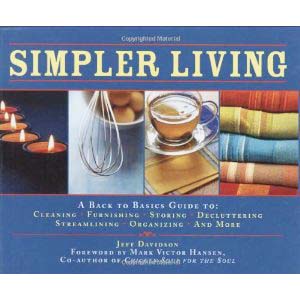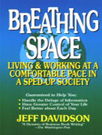Sunday, December 06, 2020
Friends: Real and Imagined
- Breathing Space Blog
Researchers from the National Opinion Research Center have found that people who watch a lot of television seem to be as psychologically content as people who have many friends. These disappointing findings stem from the fact that, "the human brain evolved long before television came along, so subconsciously it recognizes any face it sees regularly as a friend, even if it is on the screen," says Satoshi Kanazawa, Ph.D., author of the study.
Does the above explain why society remains in a stupor of overfed, undernourished, overweight, socially inept citizens? After all they are, indeed, getting their social and psychological strokes by tuning in to see their favorite "friends" each week.
As someone recently noted technology can certainly be an aid to human kind but if we are not careful it can greatly diminish of the quality of our lives. Technology distracts us from our own thought, daydreams, even our own imagination. When we fill in the time from the car to the elevator and the elevator to the office, or from lunch back to the office, with a beeper or cell phone, we interrupt the opportunity for people to marinate in their own imaginations. Labels: friendship, imaginary, information overload, quality of life, stupor, technology, television
Saturday, February 15, 2020
Choice Galore and Their Consequences
- Breathing Space Blog
For too many people, an abundance of choices has become a curse, not a blessing. In the 1984 movie, Moscow on the Hudson, the late Robin Williams portrays a Russian defector who settles in New York. He goes to the supermarket to buy some coffee. The markets he knew in Moscow were small and poorly lit. The Manhattan supermarket is dazzling. The coffee display overwhelms him – there is instant, freeze dried, dark brew, etc., in boxes, cans, and jars of different sizes and colors.
Confronted with all these choices, he has an anxiety attack, faints, falls forward, and knocks over the whole display. That scene got a big laugh, but it makes a point about our lives – too many choices. I suggest that you avoid engaging in low level decisions. If a toothbrush is available in red or green, and it's all the same to you, just grab the closest one.
Whenever you catch yourself making a low level decision, consider: Does this really make a difference? Get in the habit of making only a few choices a day – the ones that count. Labels: choice, decisions, information, information overload, shopping, society
Sunday, July 29, 2018
Telling Off the Junk Mailers
- Breathing Space Blog
Please remove my name, and all its variations, and remove all of my contact information from any and all of your databanks, mailing lists, shared files, etc.
I do not want any mail, including solicitations, flyers, brochures, catalogs, announcements, circulars, postcards, promotions, faxes, or email at any time, ever, from you or any of your associates, affiliates, subsidiaries, vendors, or clients.Thank you Labels: advice, clutter, information overload, junk, marketing
Telling Off the Junk Mailers
- Breathing Space Blog
Please remove my name, and all its variations, and remove all of my contact information from any and all of your databanks, mailing lists, shared files, etc.
I do not want any mail, including solicitations, flyers, brochures, catalogs, announcements, circulars, postcards, promotions, faxes, or email at any time, ever, from you or any of your associates, affiliates, subsidiaries, vendors, or clients.
Thank you Labels: advice, clutter, information overload, junk, marketing
Wednesday, February 28, 2018
Costly Distractions
- Breathing Space Blog
Writer Marta Vogel tells us that early man examined his food to ensure it 1) was dead and 2) had no insects. 21st century man barely looks at his food; he's fixated on the package. Corporate giants figured out that consumers could become thoroughly hooked on "package literature." Recognizing our craving for information, advertisers offer alluring product packaging. The average cereal box contains about 2,000 words, equal to eight pages of a book. Generic products, at the same basic quality as mid-level brands, were once sold by vendors who knew that people might not buy "wordless" cardboard and risk incurring "package deprivation." Package deprivation? It's no surprise today that most of our population -- not just kids -- wears clothes or accessories with slogans and messages on them. Attraction to labeling and packaging robs you of breathing space. Minute bits of extraneous data have a cumulative impact. Other symptoms of information overload abound. Do you attempt to think, converse, study, or even make love with distractions? Do you go through the motions of attempting to concentrate with office noise? Do you attempt to converse while on the Web or watching TV? Do you "need" to wind down before bed time in front of a screen? You deserve a break today. Eat healthy food and have no reading material or screens in sight. Labels: consumerism, distraction, information overload, marketing, modern life
Sunday, January 18, 2015
Drugs, Unfortunately, Rule
- Breathing Space Blog
Where is the Breathing Space in a nation that pops a pill at every turn? You'll never convince me otherwise: as a society our default response to information and communication overload is ingesting psychopharmaceuticals.
Patrick Di Justo, writing years back in Wired Magazine said, "America may be the land of Mickey Mouse and Goofy, but the U.S. isn’t exactly the happiest place on Earth. Antidepressants are the most commonly popped pills in the country, accounting for 227 million prescriptions filled last year alone. Of course, Prozac and its descendants aren’t the only popular psychiatric meds: Remedies for seizure disorders -- often used to treat bipolar disease, as well as epilepsy -- and for anxiety are among the 10 most-prescribed drugs in the nation."
"But even as our hunger for pills has grown, basic innovation has slowed. Many “new” medications are actually reformulations of previously approved drugs, not novel molecules. As a result, some of the most widely taken treatments have been around for years: Today's leading anxiety beater, alprazolam, for example, originally hit the market in 1981 as Xanax." Labels: communication, health, information overload, medicine, science
Thursday, August 22, 2013
Patent Office needs Breathing Space
- Breathing Space Blog
The National Research Council issued a report on the U.S. Patent and Trademark Office, which is beset with challenges. The report showed that vigorous competition among businesses “to file and enforce patents” is a major reason why the Patent Office is often swamped and faces a backlog of patent applications. Labels: breathing space, information overload, patents, research, swamped, technology development
|


























.jpg)


